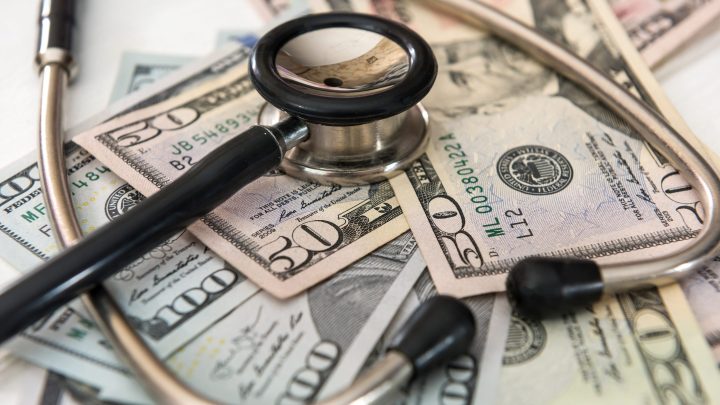
How medical debt can exacerbate pain and suffering
15% — that’s the slice of U.S. households that owed medical debt in 2021 according to data from the Census Bureau. Paring that down, 6% of adults owed over $1,000, and 1% — or 3 million people — owed over $10,000. Those numbers add up to medical debt being the leading cause of personal bankruptcy in the country.
Last week, “Marketplace Morning Report” host David Brancaccio helmed a discussion in front of a live audience in St. Paul, Minnesota, focused on the issue. University of Minnesota health care economist Jennifer Schultz, RIP Medical Debt’s Allison Sesso and the host of Minnesota Public Radio’s MPR News Angela Davis joined Brancaccio.
Watch their full conversation in the video below or listen to a portion of their conversation by clicking the media player above. The following is an edited transcript of their conversation.
Angela Davis: The talk show that I host, many of you may know, we are able to open the phone lines and take phone calls live while we’re on the air from our listeners. Ever since the pandemic, people have just been openly sharing their emotions and their pain. And I was just shocked by how much pain people are in. Also, the shame and guilt that came along with the medical debt. Because think about it — the reason you have medical debt is that you’re in pain, right? You fell, you have a disease, you had to have a surgery.
A listener called in who had been the victim of a violent assault, and suffered a brain injury and also damage to her visual cortex, so she couldn’t see very well. She was describing, “I’m getting all these bills. I don’t understand the bills. I don’t even know how to call to get help. I don’t know what to do.” It’s just another example of just the despair that people have and how they’re suffering in silence, because they don’t know what to do or how to approach something that just doesn’t make any sense.
David Brancaccio: Let’s actually play one of the callers to Angela’s show:
Drew (caller): I live in a house that is not mine. It would be, save for $28,000 in debt that my partner owed when she left this world. She had cancer. I myself am disabled and the debt against this house, I’m running out of cash on my own. But there’s not even any way I can sell the house because it’s not mine. I don’t know what to do.
Brancaccio: Now, people here in the room also kindly submitted questions to us. Rebecca, you’re here?
Rebecca (audience member): Thank you. Why aren’t we investing into investigating universal single-payer health care?
Jennifer Schultz: Well, on paper, it just makes a lot of sense that we put everybody into the same pool and we average out the costs among everybody.
Brancaccio: But one of the devil in the details pieces of it is it means some procedures will be considered essential and will be covered by the government but not everything.
Schultz: Well, I think we can negotiate prices with the drugs under a single-payer, just like the VA system, and we see they get a lot more reasonable prices. But people have different ideas. And there’s a lot of myths out there on what single-payer actually is. It doesn’t mean that government owns all of our providers or hospitals; it just means that we’re all on the same insurance pool and we have more leverage that way.
There’s a lot happening in the world. Through it all, Marketplace is here for you.
You rely on Marketplace to break down the world’s events and tell you how it affects you in a fact-based, approachable way. We rely on your financial support to keep making that possible.
Your donation today powers the independent journalism that you rely on. For just $5/month, you can help sustain Marketplace so we can keep reporting on the things that matter to you.

















